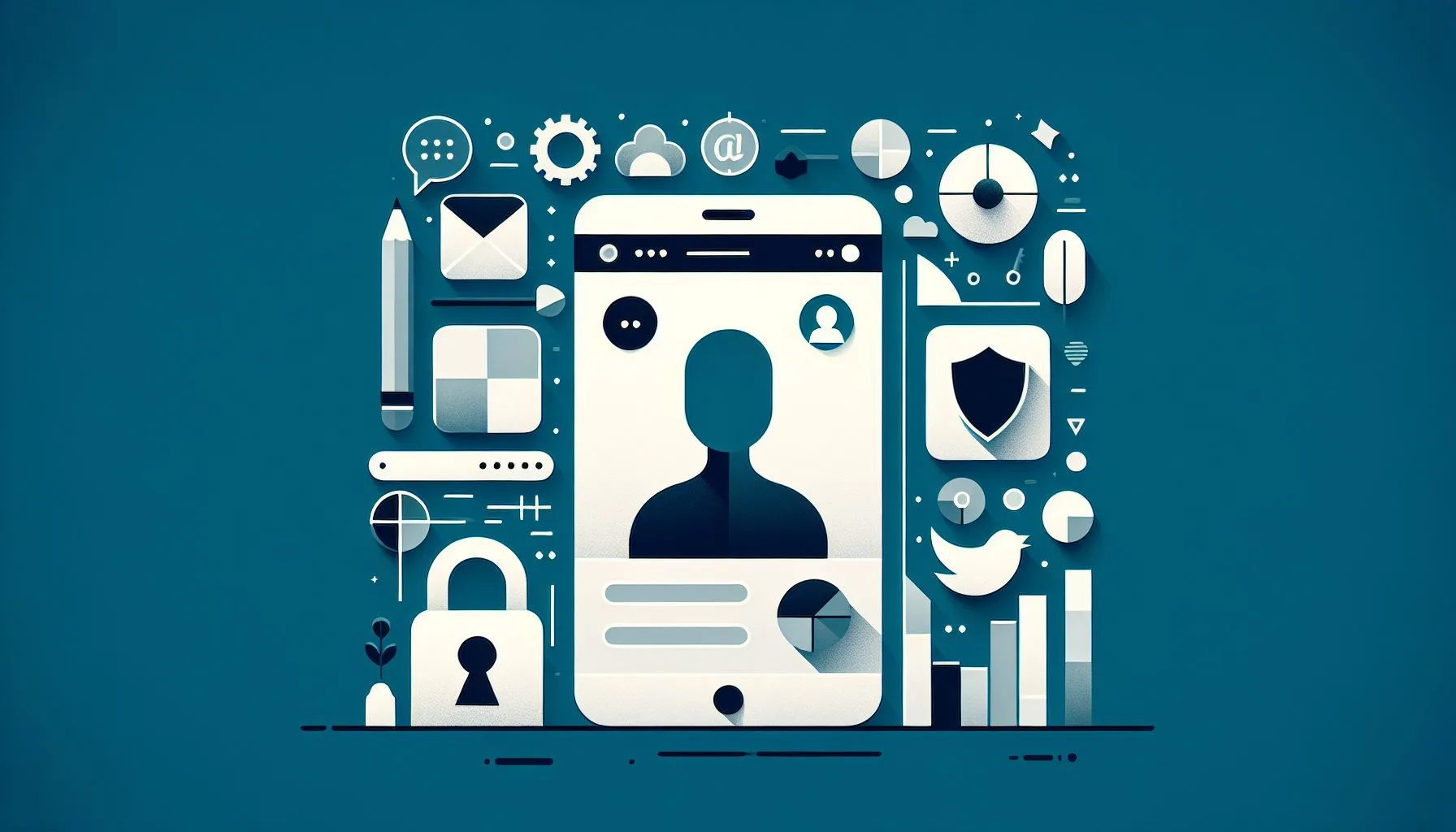Interesting Facts
Social media platforms like Twitter have become integral parts of everyday communication, enabling billions of people worldwide to instantly share ideas, opinions, and personal experiences. This unprecedented connectivity has reshaped how we interact, but it also raises complex legal questions: Can you sue a Twitter account? At first glance, it might seem straightforward to take legal action against an individual spreading harmful or defamatory statements online. However, the reality is far more complicated. A Twitter account is not a legal entity; it is a digital identifier created and controlled by an individual or an organization. To navigate the legal landscape around online defamation, harassment, and other misconduct, one must understand the difference between the account itself and the person behind it, as well as how federal laws and platform policies intertwine.
Why You Can’t Sue a Twitter Account Itself
The first point to clarify is that a Twitter account is like a digital mask — a tool or pseudonym, not a person or company you can sue. When people ask if it’s possible to sue a Twitter account, what they really mean is whether they can hold accountable the person or group operating that account. Legally, a Twitter handle or account does not have a personality under the law. It cannot be sued, prosecuted, or held liable independently because it lacks legal recognition as a person or organization.
Think of a Twitter account as similar to a phone number. If you receive a threatening call, you don’t sue the number — you seek to identify and potentially take action against the caller behind it. Likewise, if online misconduct occurs on Twitter, legal responsibility rests with the individual or entity using the account. Pinpointing who is behind a particular account can be extremely challenging, especially if the user hides behind pseudonyms or anonymous handles. Twitter’s terms of service allow users to register accounts with minimal personal information, which complicates the situation further.
This digital cloak of anonymity can protect free expression in some cases but also creates obstacles for those seeking justice after being harmed by online posts. For detailed guidance on reporting such issues, you might want to explore how to report slander on Twitter.
Legal Grounds to Sue the Person Behind a Twitter Account
While you cannot sue the Twitter account itself, you can sue the person or organization controlling it if their conduct breaks the law. Common reasons for pursuing legal action include defamation, online harassment, threats, and violations of privacy or intellectual property. Each area has its own legal standards and challenges — understanding them is vital before initiating any lawsuit:
- Defamation: If someone posts false statements about you on Twitter that damage your reputation, you might have grounds to sue for defamation. Defamation law requires that the harmful statements are demonstrably false, presented as facts rather than opinions, and cause real damage. Social media complicates this because it can be tricky to distinguish between statements of fact and hyperbole or personal opinion common in online discourse. Additionally, the viral nature of tweets increases both the reach of the damage and the difficulty in controlling the spread. For more insights on this matter, check out this article about suing for defamation on Twitter.
- Online Harassment and Threats: Repeated unwanted messages or threats of harm may fall within legal prohibitions against cyberstalking or online harassment. Many jurisdictions recognize that persistent abusive behavior online can cause serious emotional and psychological injury. If a Twitter user repeatedly targets someone with harmful messages or direct threats, this conduct may be actionable under criminal or civil law.
- Fraudulent or Deceptive Conduct: If a Twitter account is used to deceive consumers or promote fraudulent schemes, legal recourse through consumer protection laws might be appropriate. Influencers or businesses who misrepresent products or services via Twitter posts can be subject to complaints in consumer courts. These courts offer specialized procedures to resolve such disputes efficiently.
Before filing a lawsuit, gathering evidence is crucial. Retain screenshots of tweets, direct messages, timestamps, and any related interactions. Documentation is essential to build a persuasive case and demonstrate the context and impact of the alleged wrongdoing.
Need Help With Legal Challenges on Social Media?
The Limitations on Suing Twitter as a Platform
Many people wonder if it’s possible to sue Twitter itself when harmful or illegal content circulates on the platform. However, Twitter enjoys significant legal protections. In the United States, Section 230 of the Communications Decency Act shields internet platforms from liability for content posted by their users.
This immunity means Twitter generally cannot be held responsible for defamatory, threatening, or harassing content merely because it hosts the material. The platform acts as a host or distributor, rather than a traditional publisher. While Twitter has community guidelines and policies against harassment, misinformation, and other harmful behavior, and regularly suspends or bans accounts that violate these rules, these internal measures do not amount to legal responsibility for user-generated content.
There are rare exceptions, such as if Twitter itself creates or knowingly participates in unlawful content. However, in practice, suing Twitter directly over tweets made by users is almost always unsuccessful. If you’re interested, you can learn more about the challenges of suing Twitter directly here on FindLaw.
The Complexities of Online Defamation
Defamation cases in traditional settings are already difficult to prove, and the internet has made this an even more complex endeavor. One significant factor is the permanence and vast reach of digital content. Unlike a whispered insult in a private conversation, a defamatory tweet can be seen by thousands or even millions, potentially causing widespread reputational damage. At the same time, this global reach raises questions about jurisdiction, applicable law, and enforceability of judgments.
Social media posts can be retweeted, quoted, or embedded by countless other users, which complicates tracing responsibility for dissemination of defamatory content. Courts carefully consider whether a contested statement is an opinion or claim of fact, if it was made with knowledge of its falsehood or reckless disregard for the truth, and whether the plaintiff has proof of actual harm.
Proving harm in online defamation cases often requires showing that the false statements negatively affected the plaintiff’s reputation, job prospects, or mental health. Expert testimony or quantifiable evidence such as lost contracts or social ostracism may be necessary — all challenging burdens of proof.
The Role of Consumer Courts in Online Harassment and Fraud
When conduct related to a Twitter account crosses into consumer fraud or deceptive advertising, consumer courts and regulatory agencies might offer a path for complaints or legal remedies. For example, influencers promoting a product deceptively on Twitter may be investigated or sanctioned by consumer protection authorities.
Consumer laws exist to safeguard buyers from unfair practices and misinformation. Consumer courts specialize in adjudicating these disputes, often providing a more accessible and cost-effective forum than traditional civil courts.
However, the rules and jurisdiction of consumer courts vary by country and region. Understanding how consumer protection laws apply to online conduct — as distinct from civil defamation or criminal harassment — requires careful attention to local legal frameworks.
Why You Need Expert Legal Advice for Suing Over Tweets
Given the maze of challenges involved in addressing Twitter-related legal issues, consulting a lawyer experienced in internet law, defamation, and digital privacy is essential for anyone contemplating legal action. A skilled attorney can help you:
- Identify and locate the individual behind an anonymous or pseudonymous Twitter account through legal discovery tactics or court orders
- Determine whether the contested tweet meets the legal threshold for defamation or harassment in your jurisdiction
- Navigate the procedures for reporting abusive or threatening online behavior, including interactions with law enforcement or platform moderators
- Assemble and preserve strong evidence, such as digital forensics, screenshots, and witness declarations
- Choose the proper venue for litigation — whether civil courts, consumer tribunals, or criminal prosecution in serious threat cases
- Assess the risks, costs, and potential outcomes of pursuing a lawsuit versus alternative dispute resolutions such as mediation
Balancing Free Speech and Protection from Harm
The issue of suing Twitter accounts is intertwined with the fundamental principle of free speech. Courts regularly grapple with balancing freedom of expression against the need to shield individuals from defamation, abuse, or threats. This balancing act grows ever more complicated as technology changes the way people communicate and engage publicly.
Social media platforms like Twitter resemble modern public squares, but on a scale and speed previously unimaginable. Legal systems worldwide are still developing rules and precedents to address these new realities while protecting core liberties.
Awareness of how these tensions play out can empower users to make informed decisions about when to seek legal recourse and when to rely on community standards or platform moderation.
Practical Steps If You Are Harmed by a Twitter Account
If you find yourself harmed by content on Twitter, certain steps can make a significant difference:
- Document Everything: Save screenshots showing offensive tweets, usernames, timestamps, and any related replies or messages. Keep this information organized and secure.
- Report to Twitter: Use the platform’s reporting tools to flag harassment, threats, or misinformation. Although responses vary, this can sometimes lead to removal or suspension of offending content. For details on how to raise reports effectively, visit the report a bug page on ViralAccounts.
- Consider Professional Advice: If the harm feels serious or ongoing, seek consultation with a lawyer to explore your legal options and whether pursuing a claim is viable.
- Alternative Approaches: Sometimes, sending a cease-and-desist letter or requesting mediation can achieve resolution without formal litigation.
- Protect Your Well-being: Online abuse is emotionally draining. Reach out to supportive friends, family, or mental health professionals as needed.
The Future of Online Accountability
Looking ahead, the question of suing Twitter accounts highlights broader societal challenges about accountability in a world of digital anonymity and rapid information flow. Legal frameworks are evolving in response, attempting to hold individuals responsible for harmful conduct without suppressing free expression or innovation.
Lawmakers, courts, and platforms continue to refine standards around what constitutes unacceptable behavior online and how to effectively enforce consequences. As this landscape shifts, users should stay informed about their rights and the limitations of legal remedies.
Practicing caution and awareness online can sometimes prevent harm before it escalates into legal conflict.
Final Thoughts: What You Need to Know
The reality is that you cannot sue a Twitter account as if it were a person. Instead, accountability centers on the individuals behind these digital profiles. Pursuing legal action requires patience, evidence, expertise, and often, courage.
Understanding this nuanced legal terrain sheds light on the complex interaction of law, technology, and human behavior today. The internet offers new possibilities for connection and expression but also demands careful attention to responsibility and protection.
If you have been harmed by defamation, harassment, or fraud on Twitter, your options depend on many factors. Seeking expert legal guidance is the best path to know whether and how to seek justice. Even in a vast and often anonymous online ocean, every individual deserves respect, dignity, and a measure of protection under the law.
Can I sue a Twitter account for defamation?
You cannot sue the Twitter account itself because it is not a legal entity, but you can sue the person or entity controlling the account if they publish defamatory content that damages your reputation, provided you have sufficient evidence and meet legal standards.
Is Twitter liable for harmful content posted by its users?
Generally, Twitter is protected under Section 230 of the Communications Decency Act, which means it is not liable for content posted by users. Exceptions are rare and typically involve Twitter’s direct involvement in unlawful content.
What should I do if I am harassed on Twitter?
If you face harassment on Twitter, document all incidents with screenshots, report the behavior to Twitter, and consider consulting a lawyer to explore possible legal actions. Protect your mental well-being by seeking support when needed.

